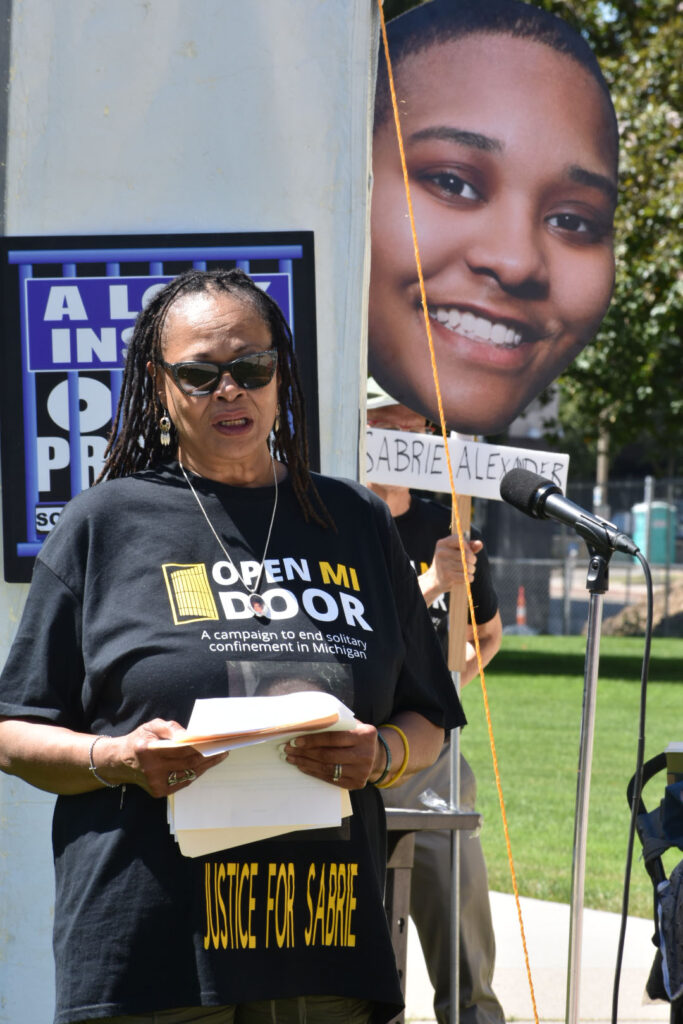In 2014, Sabrie Alexander suffered more than 100 seizures over the period of two days. She and her family already knew that she had a seizure disorder, so normally, they would have rushed her to a hospital to get immediate treatment.
But 2014 wasn’t a normal time for Sabrie, who was then 27-years-old. She was incarcerated at the Huron Valley Women’s Correctional Facility. Not only that, she was being held in solitary confinement.
According to documents her mother, Lorain Obamanu, later obtained from the state, Sabrie repeatedly screamed to guards for help, but that help never came. Instead, in the transcripts of what happened over those days, Lorain read that guards made fun of her for begging for help, even when she was crying out for her own mother.
Sabrie died in solitary confinement. She was one of 12 people to die in solitary confinement inside Michigan prisons in the past 20 years. Countless others have suffered emotional trauma because of the practice, which can hamper their re-entry efforts once they return home.
Obamanu shared her daughter’s story on Wednesday, July 16, at an Open MI Door event on the lawn of the Michigan Capitol. The Open MI Door campaign is an effort to shed a light on the practice of solitary confinement and the problems it brings to both those who it incarcerates and their families. It also suggests legislative and policy reforms, such as eliminating prolonged and indefinite detention, banning isolation for vulnerable people and ending the practices of withholding food and water or using temperature to attempt to control behavior.
The findings of the Open MI Door campaign were compiled in a report under the same name by Citizens for Prison Reform. Key findings of the report include:
- 3,211 people were being held in solitary confinement in Michigan as of June 2020
- 378 of those people have been held in prolonged solitary confinement from 6 months to as much as 20 years
- 65 percent of people held in solitary confinement in Michigan are Black, compared to the overall state prison population, which is 53 percent Black.

Lorain Obamanu tells the gathering at the Open MI Door event on the Capitol lawn about her daughter, Sabrie Alexander, who died in solitary confinement. A large image of her daughter appears over her shoulder.

